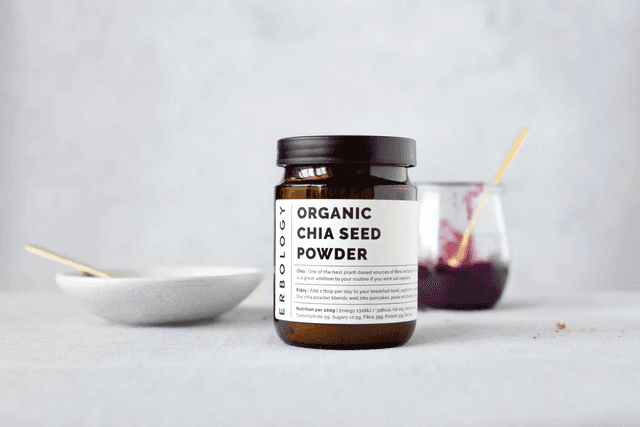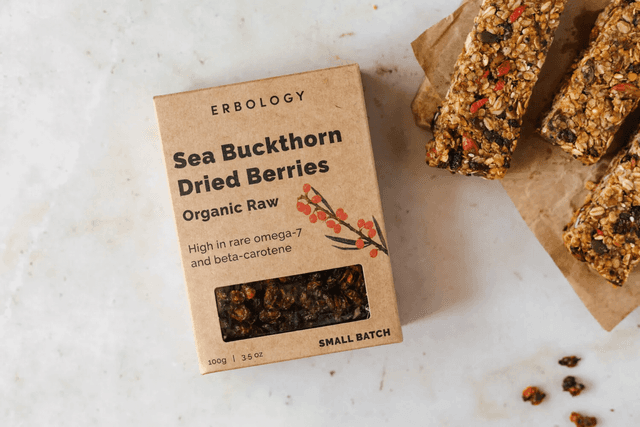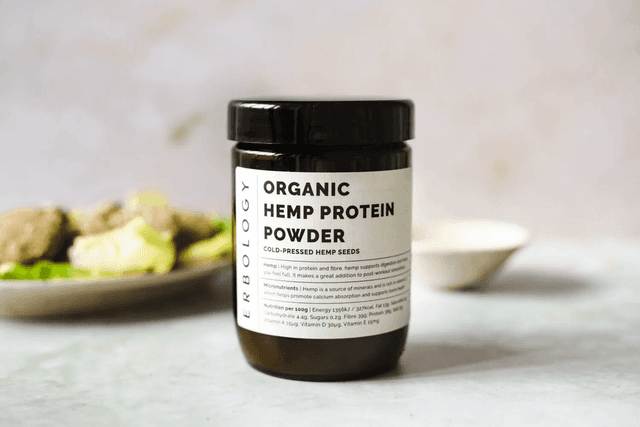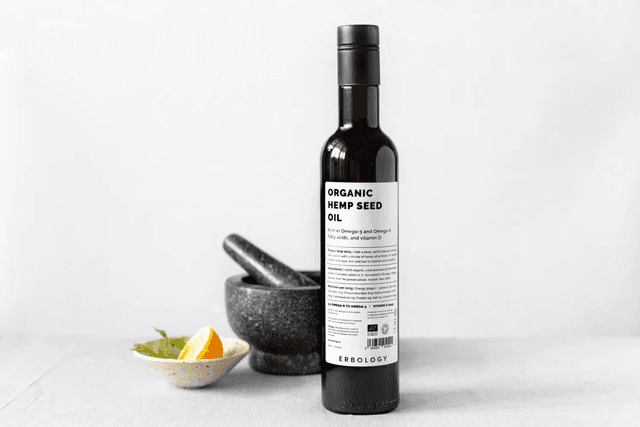19 Oct 2022
Is plant based protein good for you?
Let's start with the basics - what is protein?
Out of the three macronutrients, protein is certainly one that gains a lot of attention. A common concern about plant-based diets is that they lack sufficient protein. More specifically plant-based protein. But why is this a concern? Firstly, let’s take a look at the role protein plays in our bodies.
Proteins are essential nutrients for the human body. They are one of the main building blocks of muscles, tendons, organs, and skin, as well as enzymes, hormones, and neurotransmitters that serve many important functions. In addition, protein also serves as a fuel source, providing 4 kcal per gram.
Building blocks called amino acids make up proteins. When we digest protein from our diets, they break down into amino acids. The body then builds all the different proteins it requires from these amino acids. We produce some of these amino acids ourselves, but we must obtain essential amino acids (EAAs) from food. Generally, animal proteins contain all 9 EAAs unlike most plant-based proteins.
The amount of protein a person needs depends on many factors, including activity level, age, muscle mass, and overall health. However, for the general healthy adult population 0.75g of protein per kg of body is recommended.
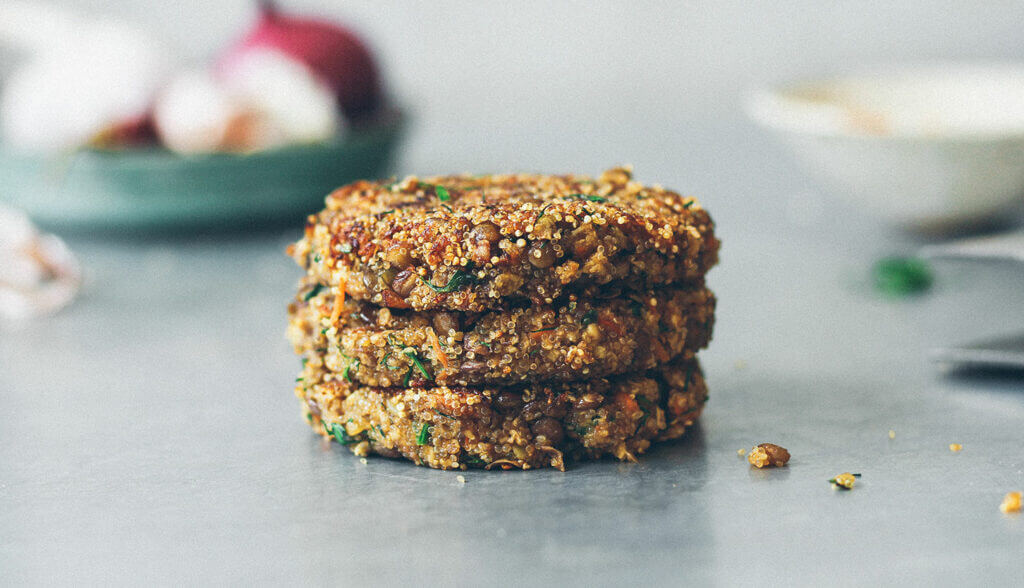
Plant vs animal protein
These days, more and more people are turning away from the more traditional animal proteins in favour of those that come from plants, especially in western societies. For example, about 28% of the American population ate more protein from plant sources in 2020.(1) But how do plant based proteins compare to animal protein?
As mentioned earlier, there are 20 amino acids that our body uses to build protein. Out of these 20 amino acids, 9 are considered essential, which means that our bodies cannot produce them itself. Therefore, you need to get them from your diet. These 9 EEAs consist of:
- Histidine
- Isoleucine
- Leucine
- Lysine
- Methionine
- Phenylalanine
- Threonine
- Tryptophan
- Valine
Animal protein contains all nine essential amino acids in sufficient amounts. Whereas, plants typically offer a limited amount of at least one essential amino acid. For example, beans and lentils contain low amounts of methionine. Alternatively, nuts and seeds are low in lysine. As a result, people often refer to plant based foods as “incomplete” sources of protein.
However, as long as you eat a variety of plant-based proteins, this shouldn’t cause a problem because you can still get sufficient amounts of all the essential amino acids your body needs. Furthermore, soybeans, amaranth and quinoa contain all the essential amino acids, like those found in meat.
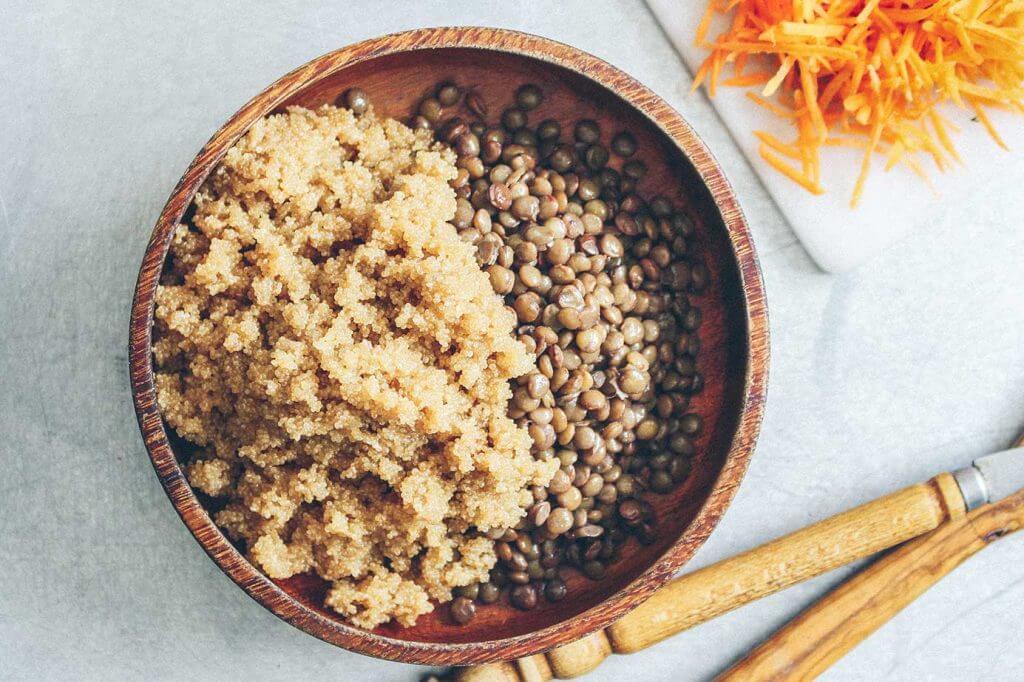
10 examples of plant-based protein
Those considering a plant based diet are often worried about low protein intake, but there are plenty of sources of plant protein. To give you an idea, here are 10 examples of plant-based protein:
- Seitan contains a whopping 25g of protein per 100g. However, seitan is a wheat-based protein made from gluten, so it’s certainly not a good source for any coeliacs! Although seitan is high in protein and fairly low in calories, fat, and carbohydrates, it’s high in sodium and is highly processed. Therefore it shouldn’t be consumed every day.
- Soybeans are one of the few complete plant-based proteins and contain around 12g of protein per 100g. Tofu, tempeh, and edamame originate from soybeans and are used predominantly in East Asian cuisine.
- Lentils, also called pulses, are a subgroup of legumes that come in multiple varieties, including green, brown, yellow, red, and black. They average 8g of protein per 100g cooked.
- Pea protein is used in a number of products such as pea milk and meat alternatives. It can contain up to 78g of protein per 100g.
- Amaranth and quinoa typically provide 4g of protein per 100g cooked. They are feferred to as gluten-free grains because they don’t grow from grasses like other cereal grains do. Also, amaranth and quinoa are complete sources of protein.
- Chickpeas also known as garbanzo beans are a common ingredient in wraps, falafel, salads and hummus. 100g portion of chickpeas provides 9g of protein.
- Nuts like almonds, cashews and walnuts are good sources of protein. The nut with the highest protein content is peanuts, which provide 26g per 100g.
- Oats contain approximately 17g of protein per 100g. Although they’re not a complete protein, they do contain higher quality protein than other grains.
- Spirulina is a type of algae often taken in powder or tablet form. 100g of spirulina powder contain around 58g of protein.
Organic Hemp Seed Powder contains 36g of protein per 100g. It’s versatile and you can add it into a post-workout smoothie or mix it into breads and cakes.
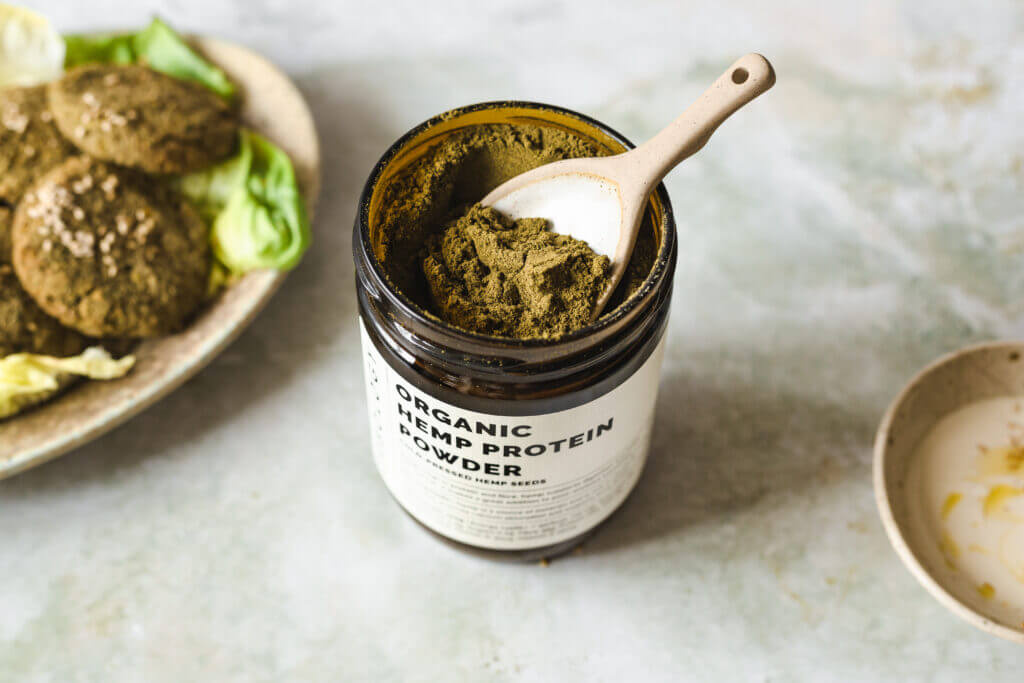
Is plant-based protein an aid for weight loss?
A simplified description of losing weight is when a person consumes fewer calories than they burn. This is otherwise known as being in a calorie deficit. In recent years it has come to light that protein is effective when it comes to losing weight, so let’s investigate this further.
One 12-week study, looked at the effect of increasing protein intake to 30% of women's diets. As a result, they consumed 441 less calories per day and lost 5 kg. Therefore, we know it can be effective with women, but how about men? Researchers gave obese men a diet consisting of 25% protein. In turn, this led to increased feelings of fullness, as well as reduced late night snacking desires and obsessive thoughts about food by 50-60%.(2,3)
A reason for these results may be because of protein’s likely ability to reduce appetite. Protein is more effective at promoting satiety (a feeling of fullness) than fat and carbohydrates, which suggests why it can lead to a reduction in calorie intake.(4)
Moreover, protein can increase the number of calories you burn by boosting metabolic rates, i.e. calories out. Evidence suggests consuming 25–30% of total daily calories from protein can boost metabolism to 80-100 calories per day.(5)
What’s more, protein can not only be an effective aid for weight loss, but it can also prevent weight gain following weight loss. In one study, a modest increase in people’s protein intake by 3% reduced the amount of fat they regained after weight loss by 50%. This may be because protein intake helps to build and preserve muscle mass, which burns calories around the clock (albeit a small amount).(6)
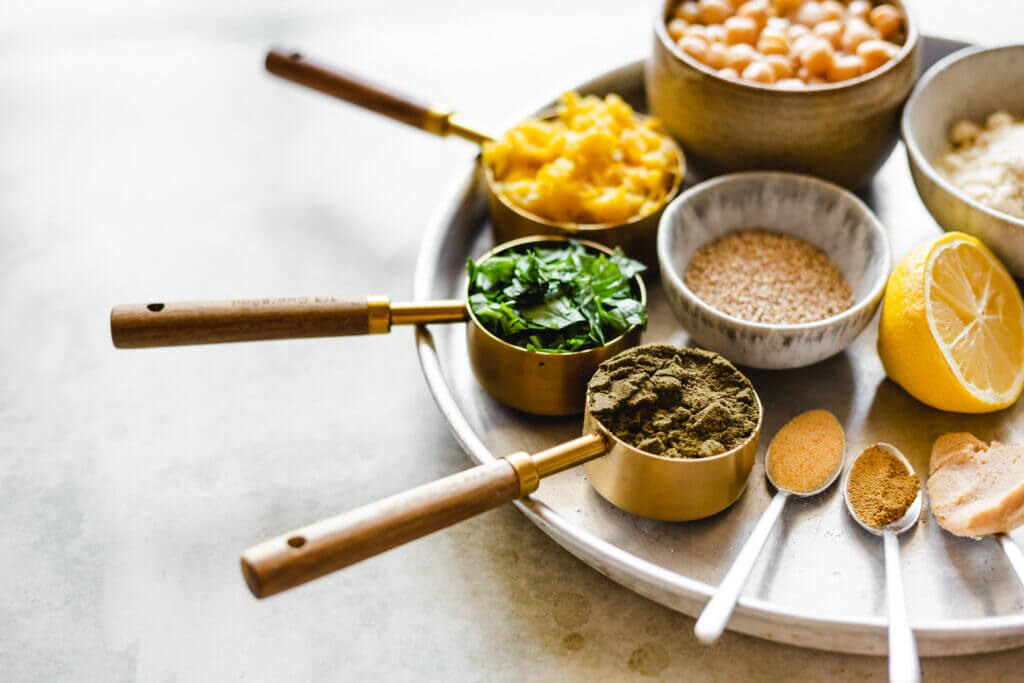
What about plant-based diets and heart disease?
Vegan and vegetarian diets which contain a lot of plant-based protein are linked to several health benefits, including heart health.
In general, swapping out animal proteins for plant-based ones decreases saturated fat intake and increases unsaturated fat and fibre intake, which is likely to benefit heart health.
For example, a recent review further links soy-rich diets to a 16% lower risk of heart disease.(7) However, despite biological plausibility, more research is needed to address confounding factors.
Researchers also suggest that plant-based diets can significantly reduce high blood pressure when compared with omnivorous diets, which indicates the diet’s ability to prevent and manage hypertension.(8)
In short, numerous studies have found plant-based diets, especially when rich in high quality plant foods such as whole grains, fruits, vegetables, and nuts, to be associated with a lower risk of heart disease.(9)
Heart disease is easier to treat when detected early. Talk to your doctor if you have any concerns about your heart health. This is especially important if you have a family history of heart disease. Therefore, if you think you suffer from symptoms of heart disease, make an appointment to see your doctor.
